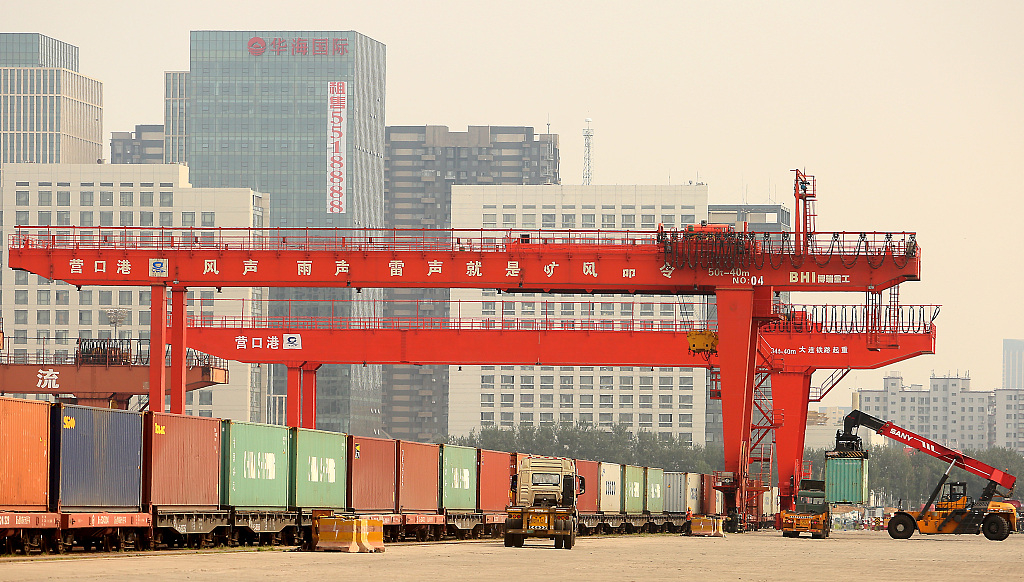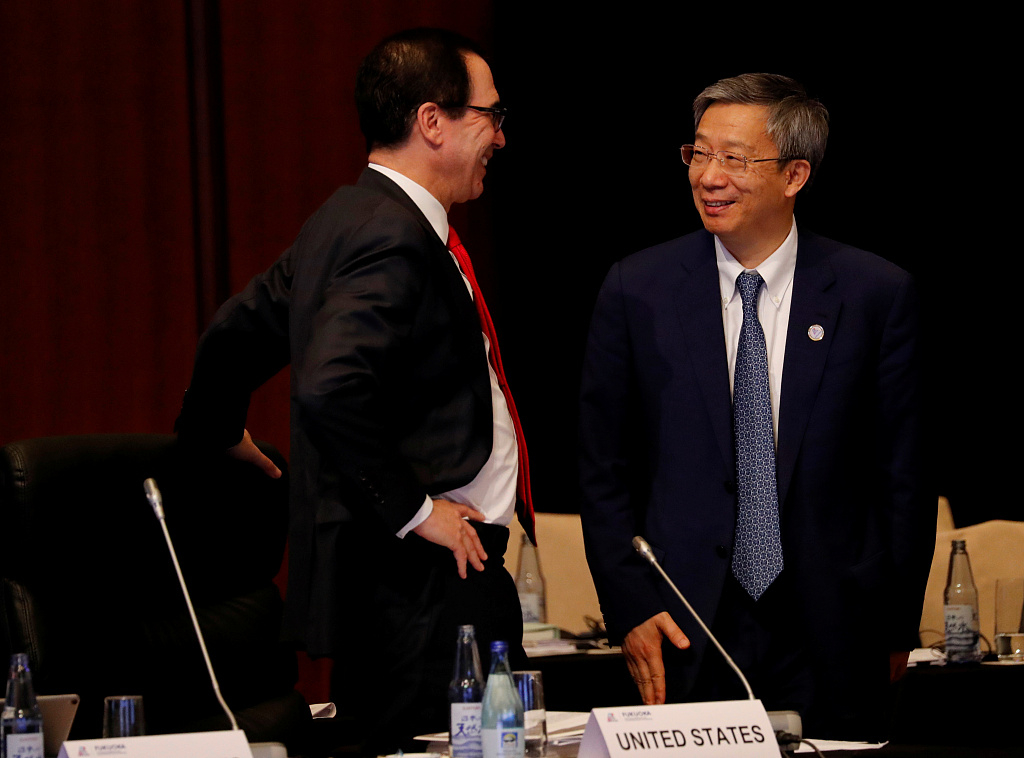

Editor's note: Kong Qingjiang is the dean of the School of International Law under China University of Political Science and Law. The article reflects the author's opinion, and not necessarily the views of CGTN.
The China-U.S. trade conflict has been escalating and is looming large as the U.S. considers imposing a new round of tariffs on 300 billion U.S. dollars worth of Chinese goods. With the G20 Summit around the corner, it is well hoped that the leaders of the two trading nations would be able to reach an agreement to terminate the war or at least reduce the tensions between the two.
It is possible that the two parties would compromise in order to mitigate the loss and damage to the industries and the economies as a whole. It is estimated that both parties have suffered hundreds of billions in losses since the U.S. commenced the trade war.

Unloading containers from a train onto trucks at a port in Yingkou, a major port city in Liaoning Province, July 18, 2018. /VCG Photo
However, the difficulty still exists because the U.S. is not only interested in greater market access in China, which is relatively easy to address, but it also wants to impose a set of rules that are going to intrude on the sovereignty of China and are tantamount to humiliation from the Chinese perspective. But I believe that the commitment to further marketization in China is where the two parties can reach a consensus and move forward. After all, China is set to beef up the marketization reform, which is in the interest of the country in the long run, with or without the trade war.
At a gathering of G20 finance leaders in Japan, U.S. Secretary of Treasury Steven Mnuchin met China’s People’s Bank of China Governor Yi Gang, apparently in preparation for the summit. Mnuchin played down the expectation of the meeting and stated that a breakthrough could only be hoped for at the Xi-Trump meeting during the G20 summit. During the briefing, Mnuchin even gave a “warning” to China that the U.S. would go ahead and impose the tariffs if China does not want a “real agreement.”

U.S. Treasury Secretary Steven Mnuchin talks with China's Central Bank Governor Yi Gang during the G20 finance ministers and central bank governors meeting in Fukuoka, Japan, June 8, 2019. /VCG Photo
It is therefore predictable that if the U.S. is not going to be more realistic in the summit about the game of give-and-take, there is a likelihood of a full-blown trade war, which would mean all the goods from China would be targeted for tariffs. This would certainly seriously damage global trade in the foreseeable future. China then would have no choice but to embrace all sorts of retaliatory measures, which may include restrictions on exports of rare earth materials, heavy restrictions on goods and services from the U.S. and more.
Nobody wants to see the trade stand-off going that far. According to free trade group Tariffs Hurt the Heartland's report, the trade war has cost Americans 22 billion U.S. dollars so far. Even worse, the sheer size of the two countries’ economy and the interconnected world economy have determined that this is far more than just trade conflicts between China and the U.S. The IMF has already warned that the trade war could “jeopardize” 2019 economic growth globally. It is extremely irresponsible if the two countries fall into a decoupling state.
Currently, China and the U.S. are in a state of mutual distrust: The U.S. has turned back on its words too many times, and there’s a long tradition of demonizing China in U.S. politics.
The G20 summit is expected to play a bigger role in laying out the plan for global governance. It is in the spirit of uniting to weather the economic storm that the G20 Leaders Summit is founded.
When the trade war that would affect the whole world looms larger, a realistic and responsible attitude is what the world needs out of the G20 Summit in Japan.
(If you want to contribute and have specific expertise, please contact us at opinions@cgtn.com.)

Copyright © 2018 CGTN. Beijing ICP prepared NO.16065310-3
Copyright © 2018 CGTN. Beijing ICP prepared NO.16065310-3